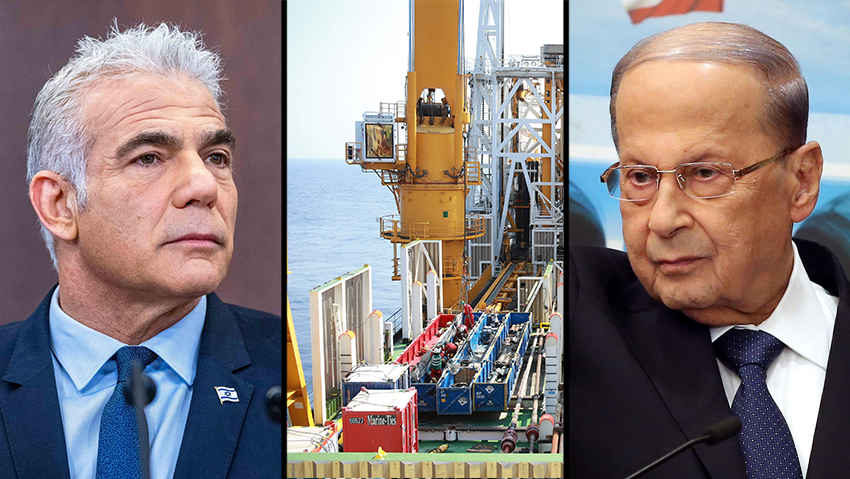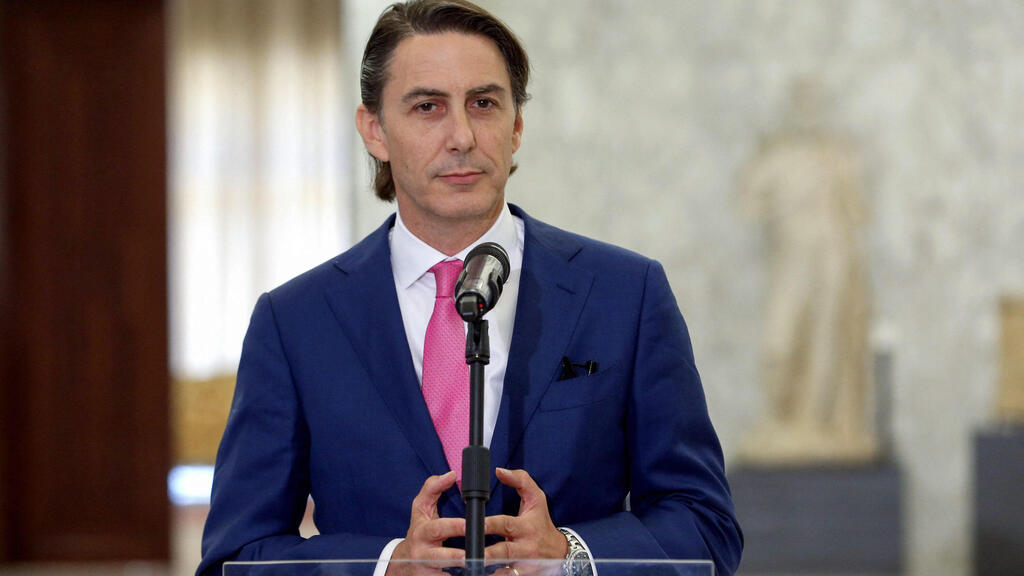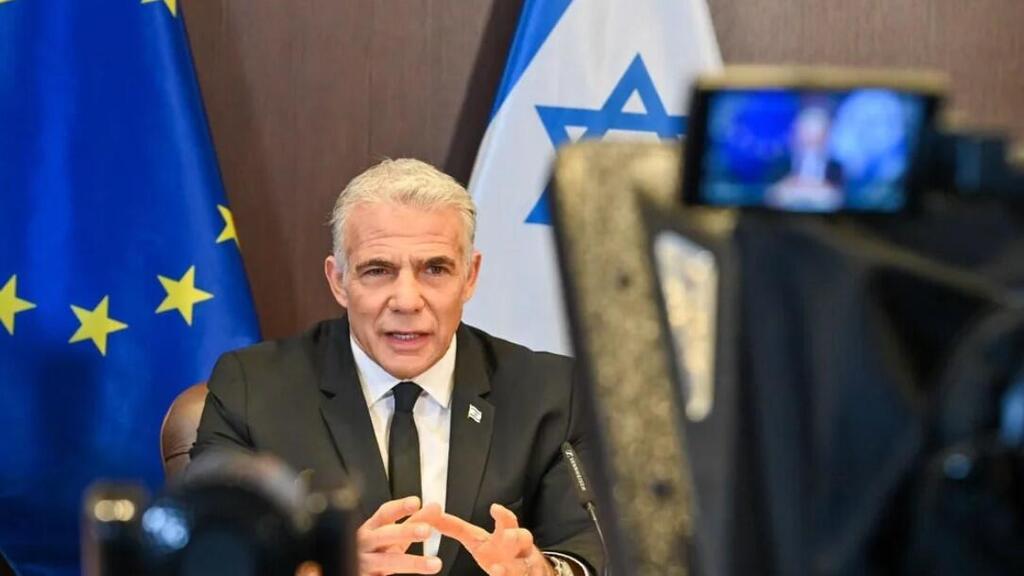A senior Israeli official said on Thursday afternoon that the chances of the maritime border agreement with Lebanon being signed before the upcoming November 1 elections are close to none due to several significant changes Lebanon made to the draft.
Earlier on Thursday, a few hours before the Security Cabinet met to discuss the details of the agreement, Prime Minister Yair Lapid announced that Israel officially rejects Lebanon's list of adjustments.
4 View gallery


Yair Lapid, Karish gas field, Michel Aoun
(Photo: Olivier Fitoussi, Uriel Cohen, AFP)
The Cabinet will meet again later to weigh possible courses of action from here on out.
"When Israel received the draft agreement, it told U.S. mediator Amos Hochstein that it agrees," says the government official. "Israel also clarified to Hochstein that if the Lebanese reply with significant adjustments, we wouldn't be able to reach an agreement. Hochstein knew this in advance. The Lebanese also knew in advance that this was Israel's stance.
Israel thought the deal would bring a lot of benefits to it and would answer many of its security and economic demands."
However, Lebanon's reply included core changes that Israel was not willing to accept.
One of these changes is related to a tangible maritime border which Israel was not willing to compromise on. The original deal stated that there would be a line of buoys that would be regarded as a UN-approved status quo border, and thus ending the maritime conflict between Lebanon and Israel.
Lebanon wanted to downgrade the buoy border's legal definition from a status quo border to a de facto border. This effectively leaves the maritime border conflict open and could potentially act as an apple of discord in the future. Israel was not willing to settle on this condition under any circumstance.
The second major change that Israel refused to accept surrounds the topic of offshore gas production in the disputed area.
Israel was originally supposed to be compensated for lost gas revenue by French energy firm TotalEnergies — which holds the drilling and exploration license for the area — rather than by Lebanon.
In case gas is discovered there, Israel would receive a cut of the revenue of the entire gas reservoir. The percentage was contingent upon a survey of the area by TotalEnergies. All negotiations on this issue were held directly in front of the French company.
The government official said that Israel was supposed to receive between 15-35% of all revenue.
Lebanon asked to axe Israel's veto right on matters pertaining to the reservoirs, meaning it would be excluded from decisions on how the gas is extracted and who could cross the line that divides the gas field between the two countries southward.
Jerusalem's refusal to be beholden to Beirut on the revenue issue stems from the tense relations between the two enemy states.
Israel's rejection of the Lebanese terms is a major setback for the agreement, which is highly unlikely to be resolved before Israelis go to the polls, and Lapid, who has been advocating for the agreement fervently, may no longer be in power to complete it.
Another major snag in any future talks is the upcoming departure of Lebanese President Michel Aoun, the sponsor of the deal on the Lebanese side, who ends his term next month.
The narrow window of opportunity for both leaders to seal the deal continues to shrink as the two sides keep rejecting each other's touchups.
Israeli officials believe that the substantial changes proposed by Lebanon indicated its discontent with the agreement's core principles. Had the Lebanese thought the agreement was beneficial overall, they would have signed it aside from some technicalities at most.
Jerusalem believes that Beirut tried to "take it for a ride" and score additional achievements, and blamed the neighbor to the north for "screwing" the deal.
"This was a good deal for Israel in terms of security and financially and that was what we agreed upon with the American mediator," the officials lamented. "Both the Americans and the Israelis thought this was a good deal for Israel and for Lebanon, and Lebanon's reply indicates it was not satisfied."
Israel is now waiting for Hochstein's next move, hoping that he manages to pressure the Lebanese to come back down to Earth.
As for gas production from the Karish field, Israel says it will go underway the minute the facilities are ready and is unrelated to whether Israel and Lebanon reach a deal.
"Israel made it clear from the get-go that Karish was non-negotiable. Karish is 100% ours and it will operate despite Hezbollah's threats. Israel will not delay the gas production because it is in our sovereign territory and no one will threaten us," one of the officials said.
Israel is expecting Karish to go online around October 31.




